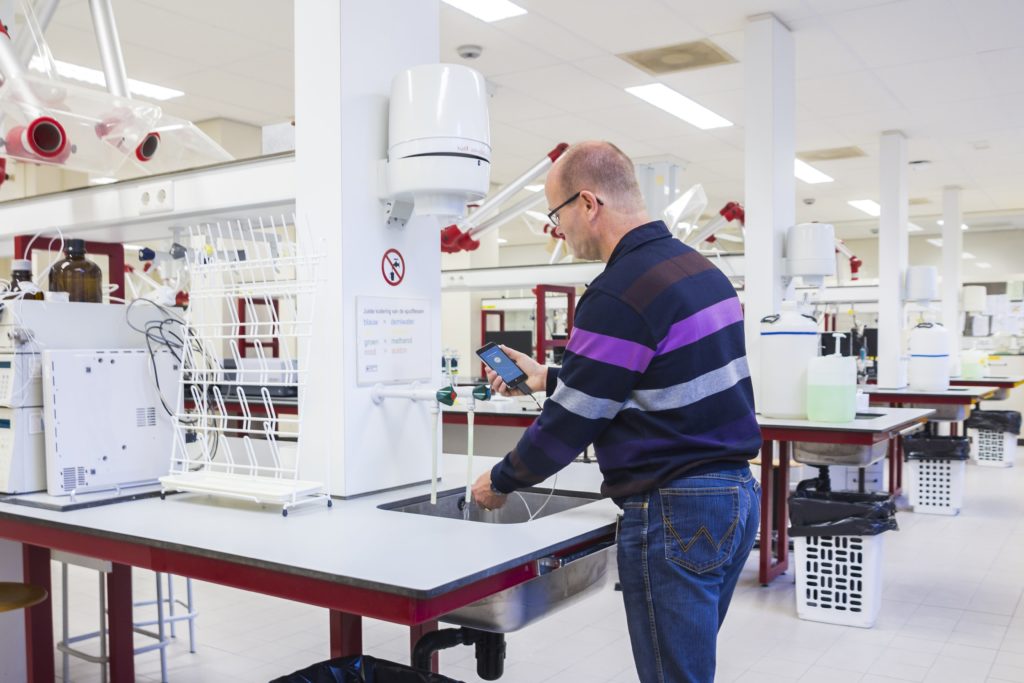University of Tilburg
"Since we started working with LegionellaDossier, our work has become a lot easier and clearer."
- Johan Verhoeven

‘Safe water in Tilburg University thanks to LD'
Johan Verhoeven only had two more years to go until his retirement when he started working with LegionellaDossier. Verhoeven, part of the service staff at Tilburg University, was happy with the switch. ‘It’s not rocket science, you don’t need any special training to use it. The system is easy to use, I found it easy to get used to it and liked working with it,’ commented Verhoeven, who is now enjoying his well-deserved retirement. Passing over his tasks to his successors went smoothly.
The campus of Tilburg University consists of over 20 buildings, containing auditoriums, offices, laboratories, restaurants, conference rooms and gyms. For years, Johan Verhoeven spent two days a week checking all water outlets. These past two years he has been doing his rounds using only a Bluetooth thermometer and a tablet. Verhoeven states: ‘you still have to check the same amount of outlets, but it’s much clearer what you have to do. You get a sign when you’re done flushing and everything is registered automatically. Before, I used to flush taps for a long time, to make sure that everything was ok. Now I can be sure that it is and I save time flushing.’

From wake-up call to total control
Legionella control became an important issue for the university after one of its lecturers came back from holiday with a legionella infection. It was a wake-up call. ‘We started using thermometers to measure temperatures, but they weren’t very accurate. We also introduced a flushing regime. We registered everything by hand. Later, we could register things through the control system of our legionella consultancy and things already got easier then.
But since we started working with LegionellaDossier’s Bluetooth thermometer and control app, our work has become a lot easier and clearer. We no longer have to register everything ourselves and we can check all data from previous weeks. It’s impossible to miss anything.’

No room for legionella during lockdown
Johan has never experienced a legionella outbreak himself. ‘It has happened before I started working here: the shower rooms were being renovated and the hot water pipes ended up being too close to the cold water ones. Fortunately, nobody fell ill and the problem was swiftly resolved by moving the pipes.’
During corona, the university was out of use for a long time. None of the outlets in the buildings were being used. This offered a golden opportunity for legionella bacteria to grow. LegionellaDossier ensured that no problems would arise. ‘We changed the settings for all buildings to vacant, so our control plan would be adapted.
For months, we flushed and measured all water outlets. We went through each building from top to bottom, opening all taps and flushing the toilets, then going back to close the taps. This way, we have prevented problems.’
Interested?
Experience the benefits yourself!
Our compelling solutions
Our risk assessment module is one part of our complete water safety platform, ensuring safety and compliance for organisations. Each product is a powerful solution on its own, and together they work even better.



